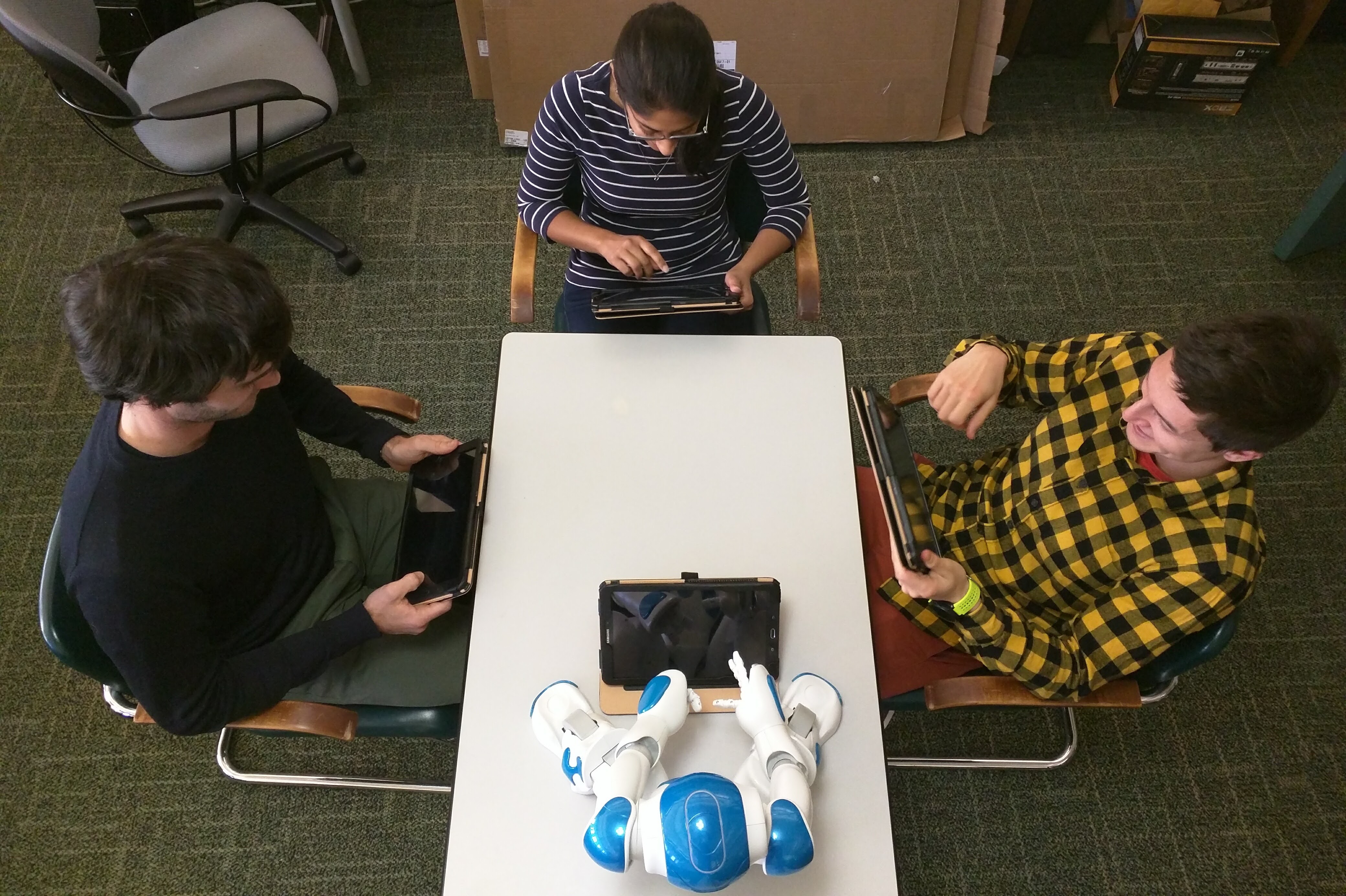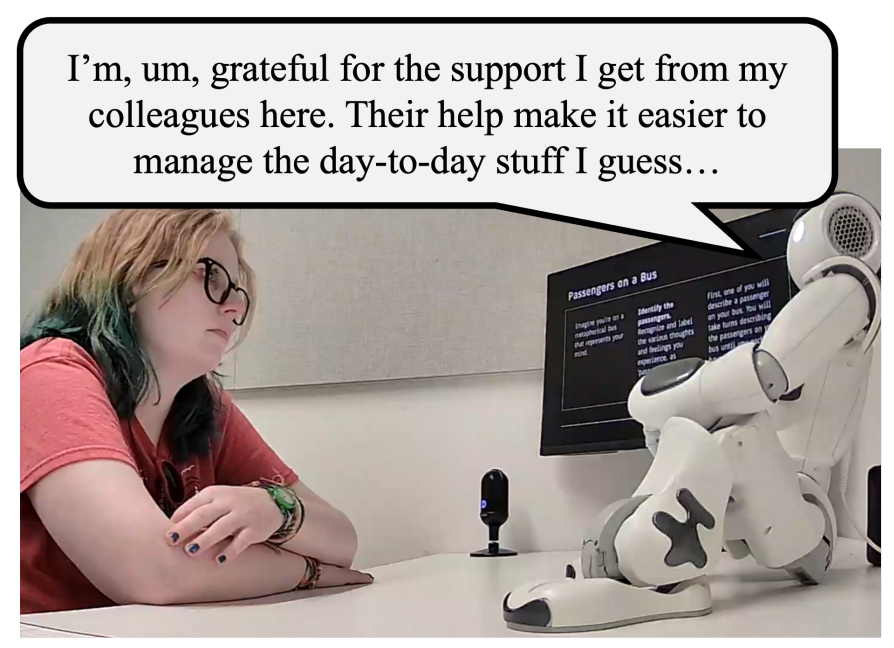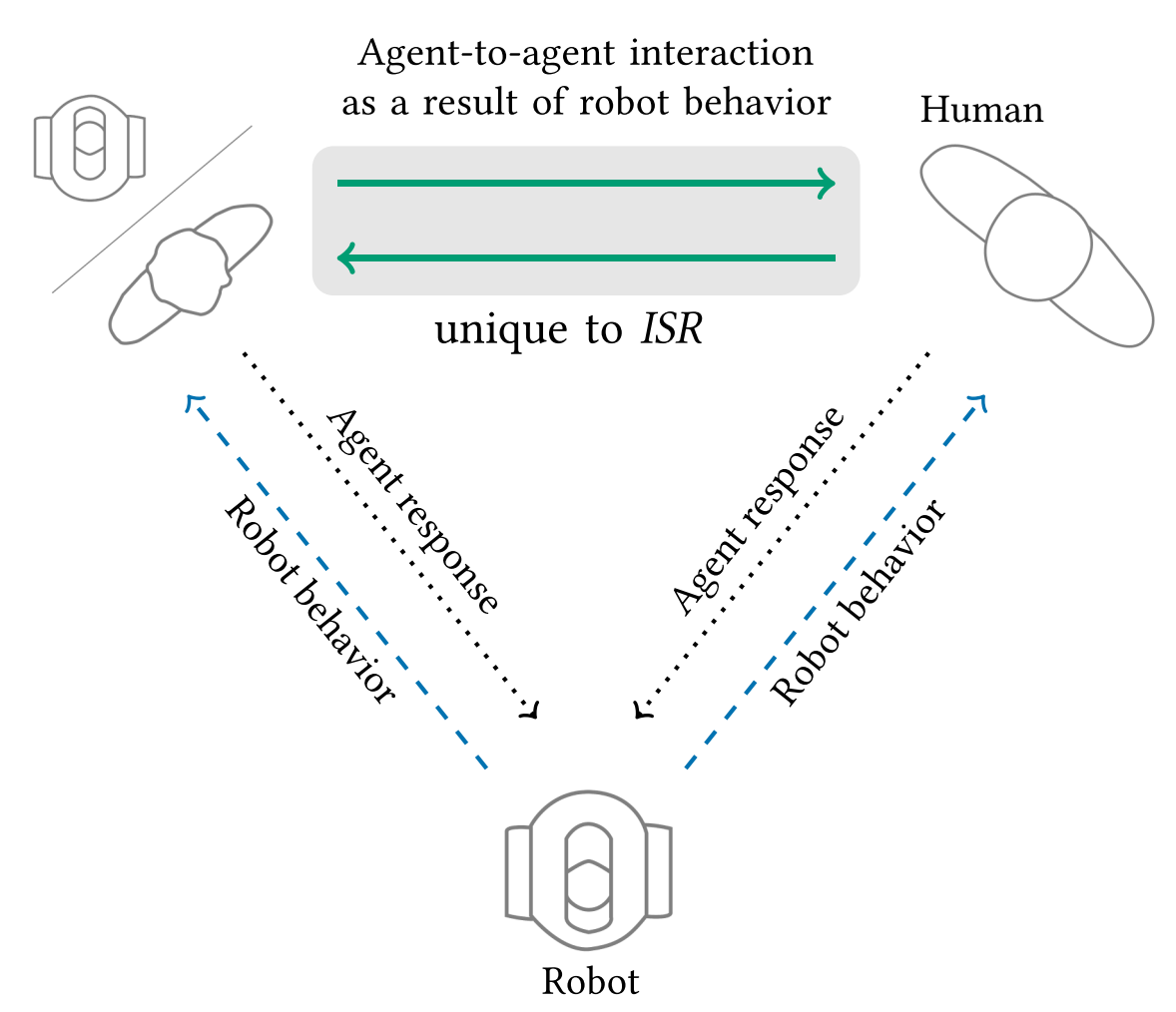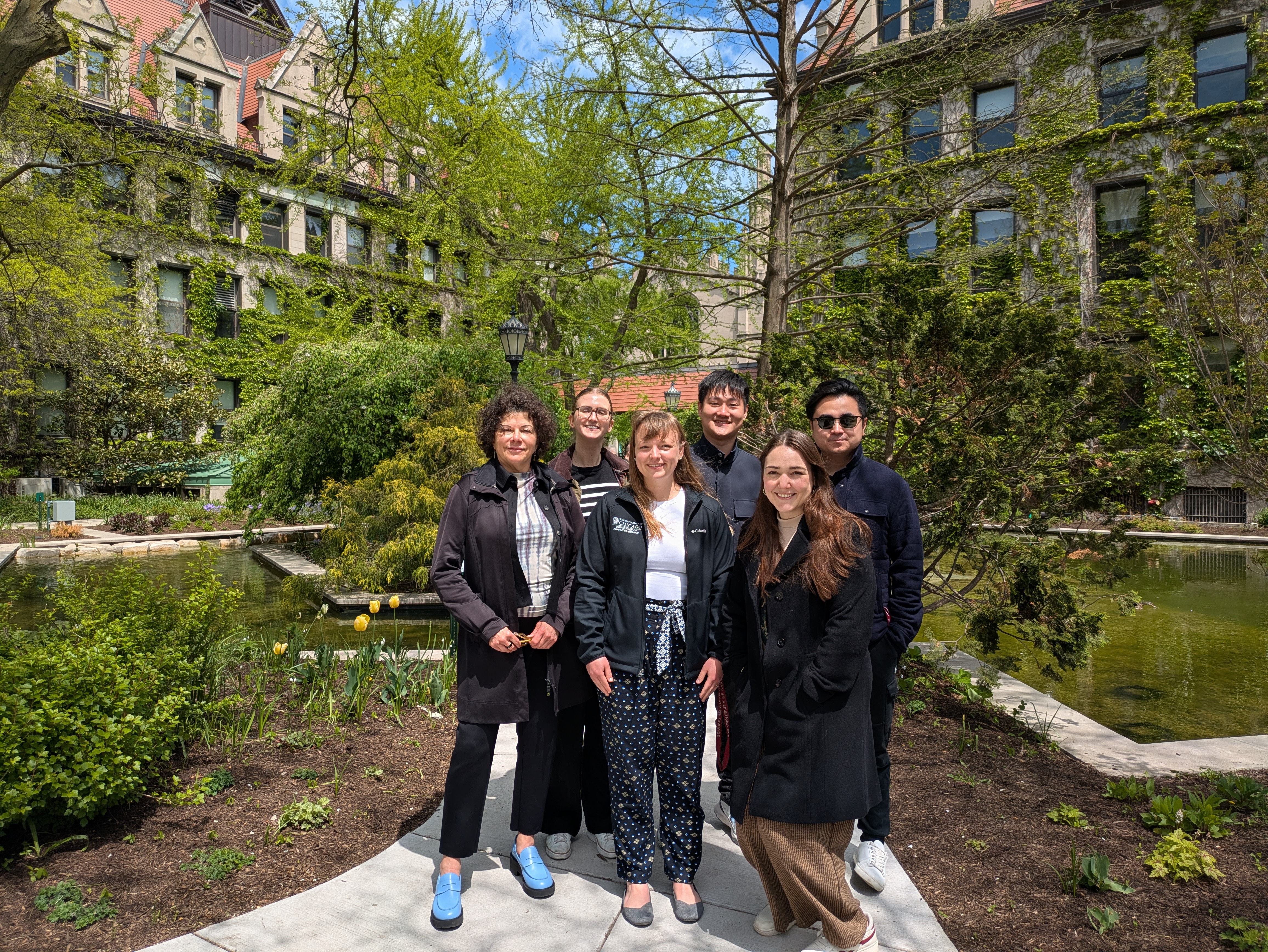
Fostering Human-Robot Rapport
We explore how robots can exhibit social skills, like building rapport, that can facilitate positive long-term human-robot interactions.

We explore how robots can exhibit social skills, like building rapport, that can facilitate positive long-term human-robot interactions.

We examine how factors such as robot personality, customizability, and autonomy can influence human-robot interactions.

We study how robots can shape human-to-human interactions in groups to improve group outcomes such as trust and inclusion.
Our work investigating user how users perceive robots as social agents when they have the ability to control and customize their behavior was featured in UChicago CS News — here's a link to the article. This work was published at HRI 2025 and received a best paper honorable mention award. You can read the full paper here (authors: Alex Wuqi Zhang, Rafael Queiroz, and Sarah Sebo).
We hosted a visit from Jodi Forlizzi, Herbert A. Simon Professor in Computer Science and the Human-Computer Interaction Institute at Carnegie Mellon University. Jodi's visit included a talk on "The Role of Design in Purposeful and Pragmatic AI" as well as discussions with our lab members about our ongoing projects. We are grateful for her time and insights!

UChicago's HRI lab participated in the Museum of Science and Industry's annual Robot Block Party this past weekend, where we were able to showcase our robots and talk about human-robot interaction research with the Chicago community. It was fantastic to participate in such a fantastic event with other amazing roboticists in the Chicago area! During the event, our lab members and robots were also featured on local Chicago TV station Fox 32.

Our paper Balancing User Control and Perceived Robot Social Agency through the Design of End-User Robot Programming Interfaces (authors: Alex Wuqi Zhang, Rafael Queiroz, and Sarah Sebo) to be presented at HRI 2025 by Alex Wuqi Zhang has been nominated for best paper!
Our group presented four papers at the ACM/IEEE International Conference on Human Robot Interaction (HRI 2025):